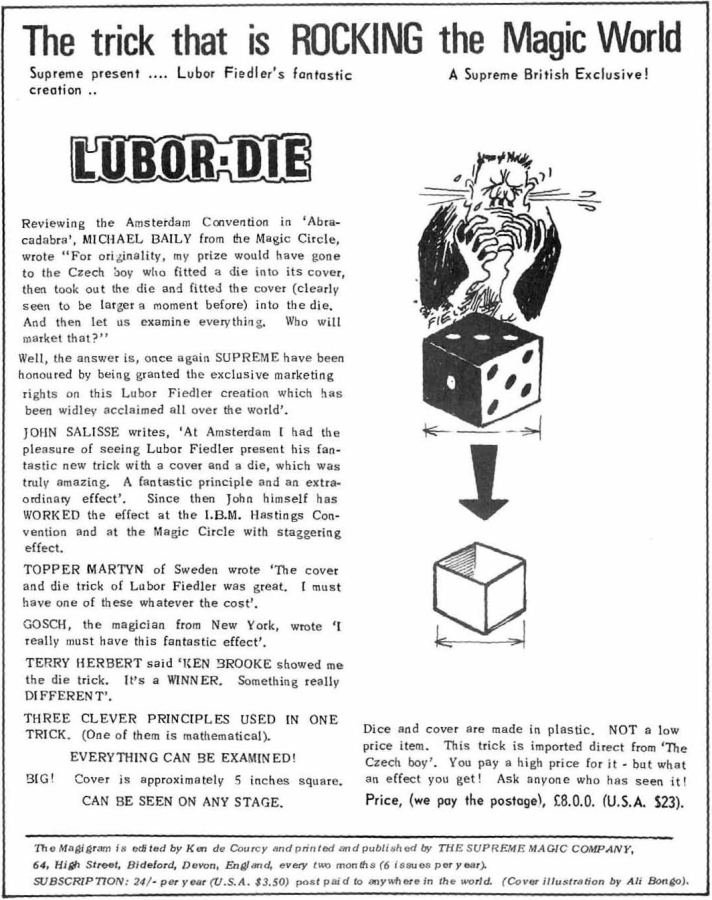Inside Lubor Fiedler's Brain
It is tough to find a magician more originally creative than Lubor Fiedler. Watching his magic is a delight because I never know what might happen next!
In these videos you'll get a peek into the labratory of a mad scientist of magic. Combining illusion with chemistry, optics, and just free-range thinking to create tricks that will leave you laughing, baffled, and surprised. (or, you might say, surplaffled)

Lubor Fiedler was born in Czechoslovakia in 1933, and spent much of his later years in Austria. As seen in these videos his creativity was astounding, and of course invented many tricks and ideas for magicians. The invnetion which really travelled around the world was Lubor's Die, commonly known around these parts as the Gozintabox, as "one gozinta the other."
Mark Setteducati wrote in a memorial on Lubor's passing in 2014:
Most of us who call ourselves inventors are really designers or re-formulators. We take existing tricks and principles and combine them, sometimes making clever things. Because we work on so many projects, we sometimes accidently stumble upon a new principle. Lubor Fiedler was the only person I’ve met who could invent tricks with new principles on demand. New principles in magic are very rare, and Lubor probably invented close to 100. His originality amazed me. I’ve made my living for many years as an “inventor” in the toy industry. I know or am friends with every major inventor in that field, and have seen hundreds of ideas from many inventors. None of them had Lubor’s originality.
There is a special quality of Lubor's published creations, many sold through Tenyo, that as the magician performing it you "know" the secret but you still get a thrill watching it happen because it's just so darn clever!
Watching his work leaves me pondering...
How can I be more inventive?
I've come to believe that a person's creative process, really they way they do anything, is uniquely tuned according to the patterns and process of their own brain. There is no universal step-by-step plan. I figure I'm well-suited to be a re-formulator of magic because of a particular way my brain breaks ideas up into their component parts. It's not something I choose to do, it's just how I perceive everything.
Lubor's brain was, clearly, special somehow but surely there's something we can learn, just a little crumb to take away!
One common element I find for many inventive people is a history of solitude. I don't know all the details of Lubor's story, but I do know he had to get by on his wits alone at some point in his life. Jay Sankey is another who credits his creativity with growing up on a farm in Canada, far from any magic or magicians.
If you always have "the answer" available to you, be it a well-stocked magic library or, gosh, the world wide web, you can often skip over the pondering and jump straight to a solution. We are spoiled by riches of accesible knowledge. Our creative minds become weak and atrophied.
Here's my suggestions for the question above:
Stew in the un-knowing. If you run into a wall, don't rush off to the store to buy a ladder. Stare at it for a few days. Think. Struggle. The easy pre-packaged answer will always be there, but the motivation of mystery is a rare treasure. One hundred years ago magicians had to figure all this stuff out for themeselves. You can too.
Pursue the impractical. Many of Lubor's wild ideas are entirely unworkable. Some will burn your fingers off! Explore your bad ideas rather than dismiss them. Brilliant ideas are born from slogging through the tedious process, not by lighting bolts from the sky.